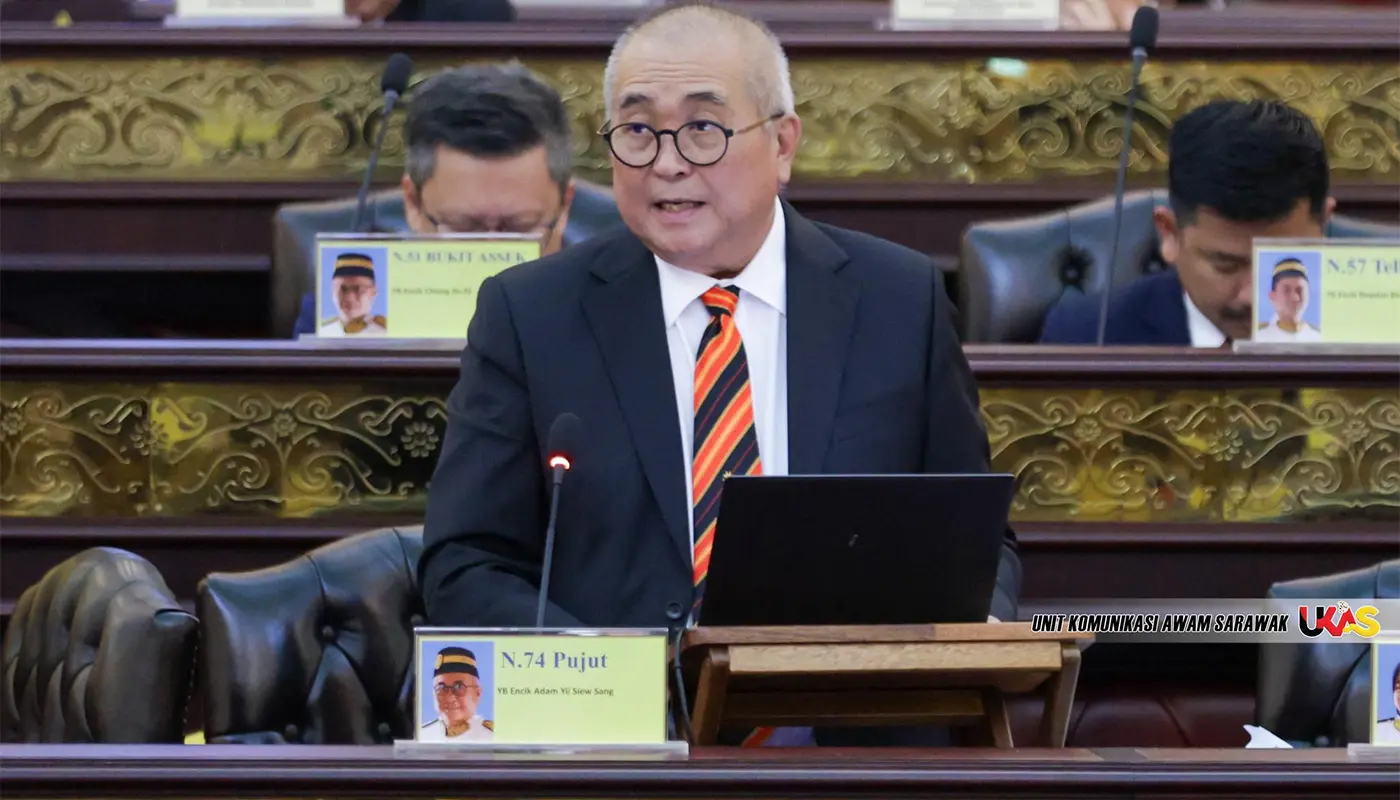KUCHING – Sarawak has taken a decisive step towards strengthening its green economy with the passage of the Sustainable Resources and Waste Management Bill 2025. The legislation introduces a comprehensive framework to regulate waste management and promote the circular economy, positioning the state as a regional leader in sustainable development.
The Bill, debated during the Third Meeting of the Fourth Term of the 19th Sarawak State Legislative Assembly, establishes a new authority tasked with overseeing waste management.
This body will regulate operations, develop guidelines, conduct research and raise public awareness, ensuring that waste is managed responsibly from generation to safe disposal.
State Assemblyman Adam Yii Siew Sang described the Bill as critical to supporting the Post-COVID-19 Development Strategy (PCDS) 2030. He noted that the framework covers every stage of waste management, including segregation, collection, transportation, treatment and recycling.
“Its implementation is considered critical in supporting the PCDS 2030 through the development of green industries, a circular economy and high-skilled employment opportunities,” he said.
The legislation also establishes the Sustainable Resources and Waste Management Fund, which is expected to generate new revenue streams through licensing fees, levies, enforcement penalties and investment returns.
Waste materials such as biomass, wood waste, construction debris and industrial by-products will be repurposed as economic resources, creating opportunities for new industries and income generation.
Adam Yii further highlighted public health benefits, stressing that proper waste management reduces pollution, mosquito breeding and disease risks.
He pointed to the “Monetize Your Waste & Incentivize Waste Segregation” programme by Miri City Council, which will begin in January 2026 and is projected to save up to RM12 million annually.
Deputy Premier Datuk Amar Douglas Uggah Embas, who presented the Bill, emphasised Sarawak’s abundant biomass resources, including palm oil residues, woody biomass, sago and municipal waste.
He explained that under the Sarawak Energy Transition Policy (SET-P), bioenergy is expected to play a significant role in the state’s energy mix by 2035.
The palm oil industry alone produces vast amounts of empty fruit bunches (EFB), palm oil mill effluent (POME) and palm kernel shells (PKS), all of which can be converted into energy and bio-based products.
Sarawak is also exploring biomass co-firing in existing power plants and converting municipal solid waste into energy.
Datuk Amar acknowledged that despite the abundance of resources, utilisation has been limited due to regulatory and logistical challenges.
The new authority will address these gaps by coordinating policy implementation, enforcing compliance and encouraging private sector participation through incentives.
“The enactment of this Bill strengthens Sarawak’s ability to manage its resources responsibly while opening new economic opportunities for the people,” he said.
The Bill’s passage marks a milestone in Sarawak’s journey towards sustainable growth, combining environmental protection with economic resilience and aligning with the state’s long-term development aspirations.




